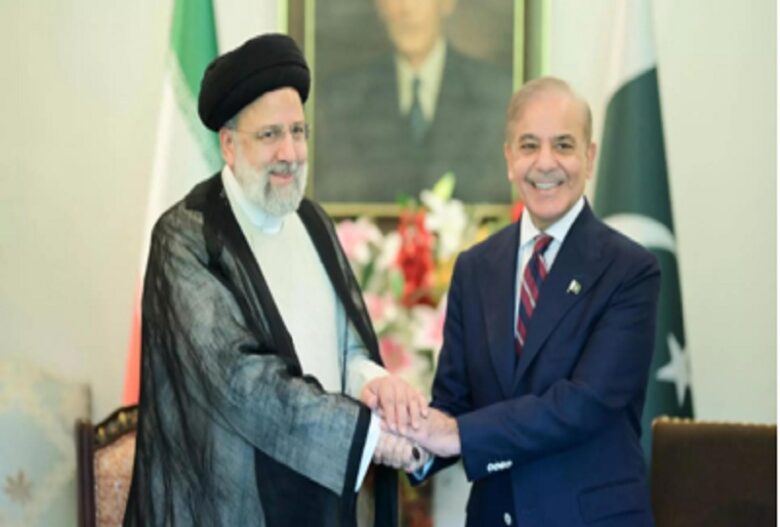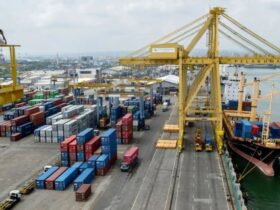Iranian President Ebrahim Raisi, alongside Pakistan’s Prime Minister Shehbaz Sharif in Islamabad, declared on Monday their mutual commitment to boosting trade volume between their nations to $10 billion a year.
Raisi deemed the current level of trade as “unacceptable” and emphasised the need for substantial growth in economic relations.
Raisi’s three-day visit marks the first by any foreign leader since Pakistan’s controversial general elections on February 8.
Against the backdrop of Iran’s recent attack on Israel, which involved more than 300 drones and missiles, Raisi’s visit to Pakistan is closely monitored amidst ongoing tensions with Israel and the backdrop of US sanctions.
“We are committed to strengthening relations at high levels. We have decided to increase economic, commercial, and cultural relations between Pakistan and Iran,” Raisi stated.
Sharif echoed the sentiment, emphasising the importance of maintaining a robust relationship despite challenges, while also praising Iran for its staunch stance on the humanitarian situation in Gaza and urging an immediate cessation of hostilities.
The 900km border shared by Pakistan and Iran is susceptible to unlawful crossings, smuggling, and militant infiltration, with both nations accusing each other of failing to prevent terrorist organisations from finding refuge on their soil and conducting cross-border attacks.
In January, Iran launched missile strikes against anti-Iranian militant hideouts in Pakistan’s Baluchistan province, prompting Islamabad to retaliate with strikes on bases of anti-Pakistan militants operating from Iranian territory.
This exchange raised concerns about broader conflicts and regional instability.
Accompanied by his spouse, the foreign minister, cabinet members, and business representatives, the Iranian President’s visit is expected to address financial and legal issues related to the construction of a gas pipeline between the two countries.
Despite signing an agreement in June 2009 for the pipeline to export Iranian natural gas to Pakistan, construction on the Pakistani side has yet to commence, likely due to US pressure as Iran’s energy sector faces sanctions over its nuclear program.
Iran’s recent attack on Israel further complicates Pakistan’s efforts to proceed with the pipeline.
YOU MAY ALSO READ: Tension as Taiwan hits with magnitude 6.0 quake after days of tremors









Got a Question?
Find us on Socials or Contact us and we’ll get back to you as soon as possible.